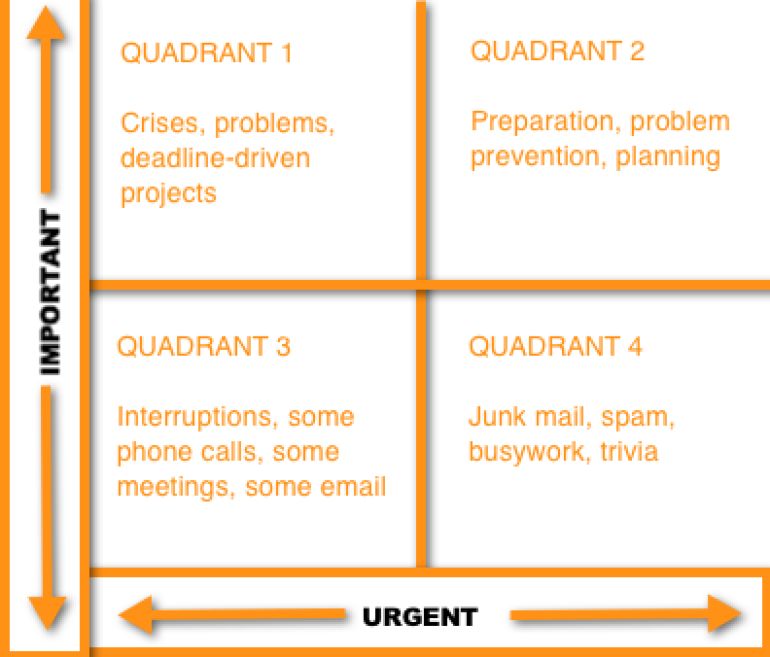4 ways to achieve business success daily
I don't know about you, but I get caught up in a day and can be in a completely different place at the end than I was in the beginning - sometimes in a physically different place and sometimes in a different frame of mind. Like me, our trades businesses will have different tasks and activities that need to be done throughout the day, and if you don't get them done you wouldn't be in business any more!
Here's my 4 ways to achieve success.
Number one: Plan
Sounds simple right? But there's a balance - you have to plan but you can't be too rigid otherwise your plans will get off track and you'll spend your whole day re-planning. I like to get an early start and enjoy my quiet time in the office before lots of people are around. I have a cup of coffee, and sit down for the time it takes to drink my coffee and simply think about what I need to get done today - before I even look at my diary. I know there are meetings to be had, but I'm thinking about things that don't happen in meetings, phone calls to return, bills to pay, colleagues to discuss things with, etc.
In your business, a lot of your planning has probably happened in the days before - you've made appointments with customers, have jobs to be done by you or your team, etc. Plan your day and never start your day allowing email, correspondences and interruptions to determine the course of your day. Of course, you'll have interruptions but you can deal with them better if you know that there is a plan to achieve goals outside of those interruptions. Think about how much time it should take you to complete a task, and then block time accordingly. Use Google Maps to see how long it will take to get from appointment to appointment, and think about the tasks you can do while you're driving eg catching up with your team, calling customers (if you can) and of course, touching base internally with your goals for the day.
Prioritisation is an important part of planning, and I prioritise the same way I eat - saving my favourite bits for last. This usually means I get through the drudgery when I have energy and then when I'm tired I'll get energised by doing the bits I love. Everyone's prioritisation will be different but take care to think about what you'll start with. I've had great success with using Steven Covey's Time Management structure when I want to be super efficient. Planning to spend time in Quadrant 1+2 and planning to have time for quadrant 3 (if necessary) is a great tool to identify what you really should be doing in what order.
Number 2: Start
Taking action is the most important part of any plan to achieve goals - if you don't take action, your plan was a waste of time :) Your plan isn't a 'to-do' list - it's an action plan. I always think of 'to-do' lists as things I write down so I don't forget about them but will only do them when I have an opportunity. Easy to mix the two up and all you'll do is stress yourself out and start doing unimportant things while important things pass you by. When I've got a really crazy day I put my list down on paper really quickly and tick things off as I go - this gives me both a sense of control and a feeling that I'm making progress.
Number 3: Finish
A friend of mine that runs a very successful business talks about the last 100 metres being the most important. And they absolutely are - there's no point in doing most of something and then stopping. Complete everything you start, keep your promises to customers and yourself. The last hundred metres is also important in terms of the 'finish' - a great job where you leave mess afterwards or rush out the door in a hurried and uncommunicative way throws a bad light on everything. Take your time to make sure everything's finished - whether it's a meeting with a supplier, a job for a customer or re-checking that email, quote or invoice one last time.
Number 4: Review
Planning is a cycle - you start with an idea and end with a fact, be it a completed project, a phone hanging up or a letter dropped into the post. Once it's done, review what's happened and anticipate any next actions or look for ways you could have worked more efficiently. At first when someone told me to do this (way back in the last century) I wasn't a believer. 'But it's done!' I thought. I did see some value in looking for ways to improve, and so I adopted it as part of my daily activities. Now it's second nature, I don't even have to allocate time to it because it happens naturally all the time. If you work with more than just yourself, it's also a great idea to do this regularly as a team.



